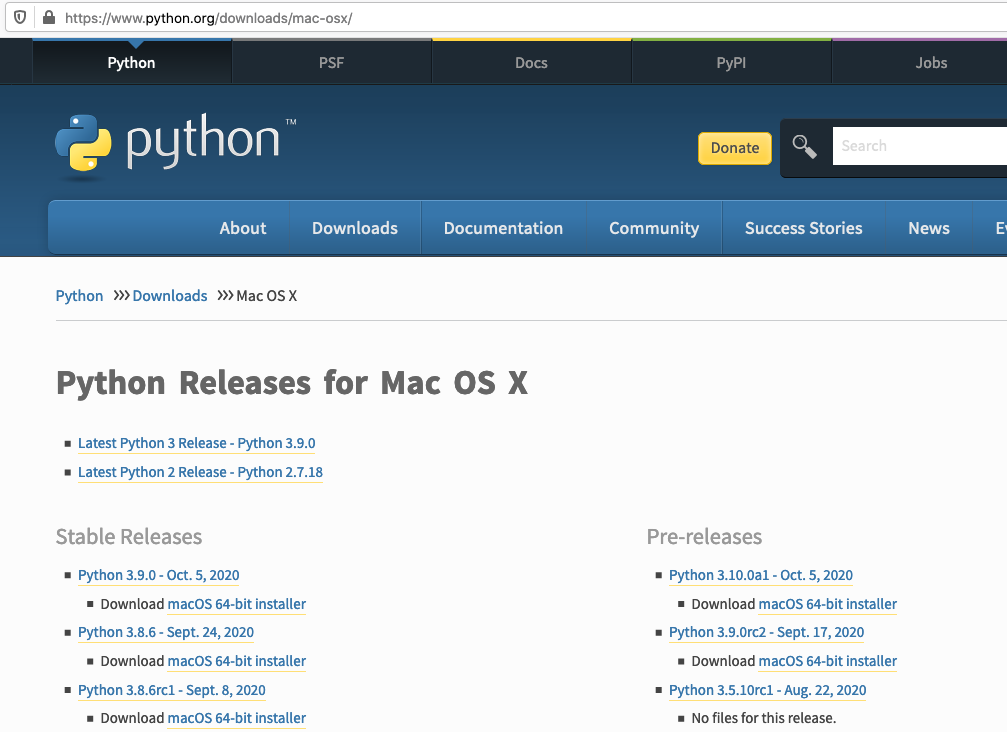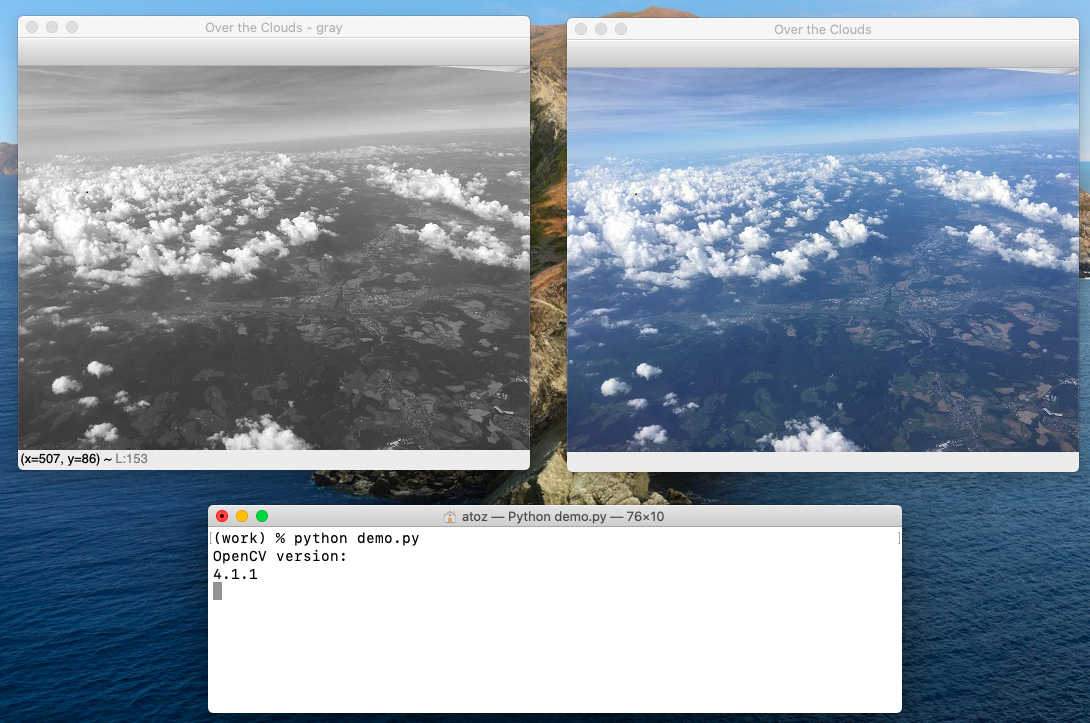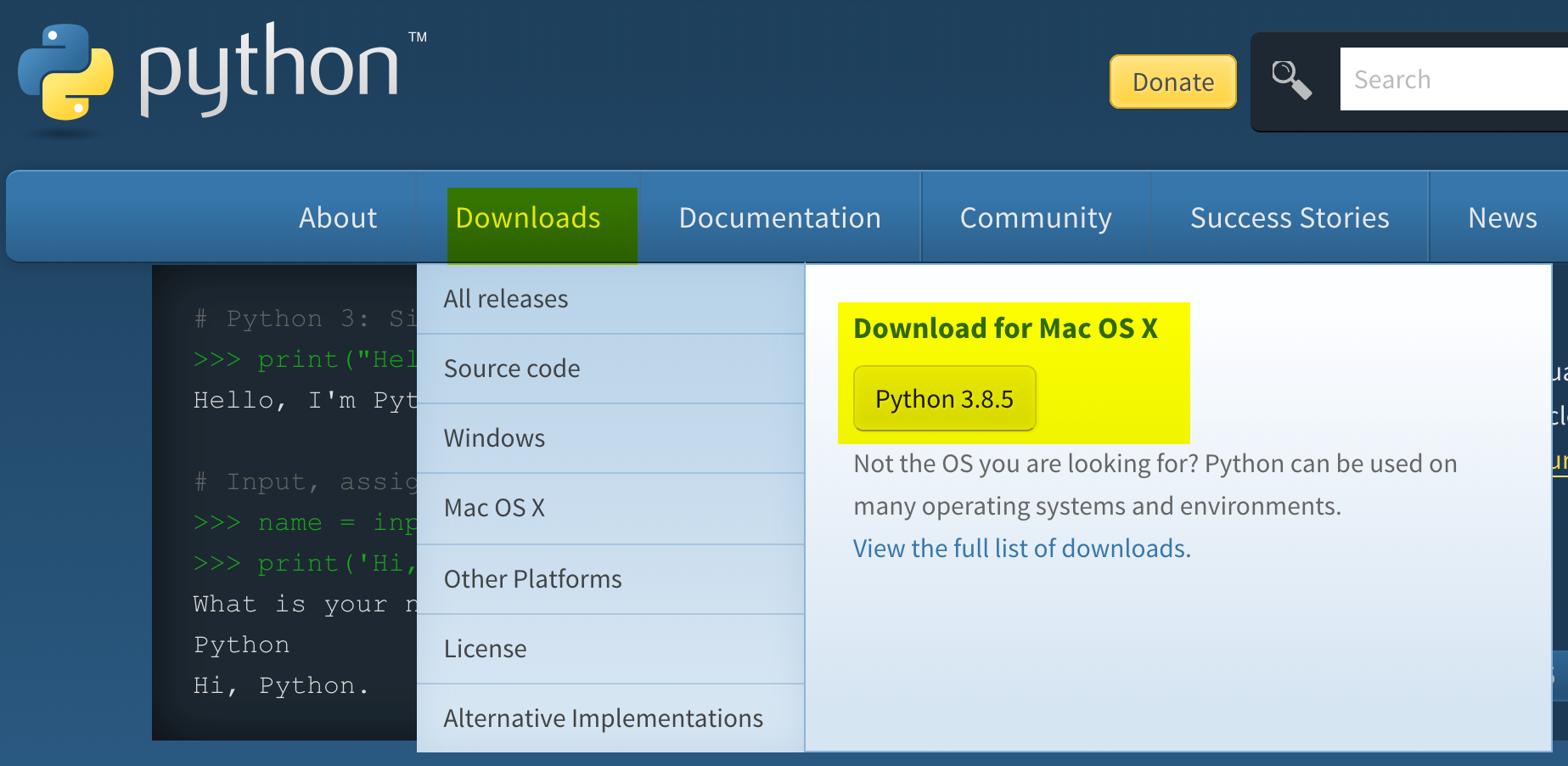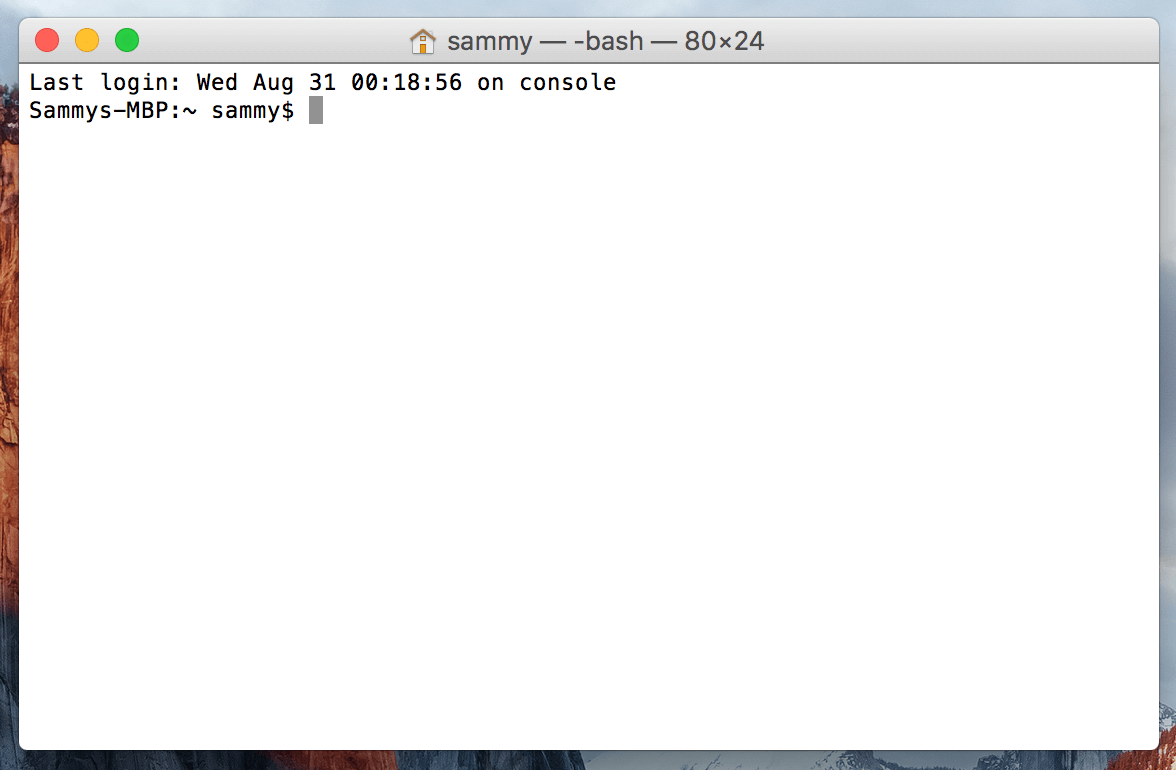Python 3 Macos Catalina
Release Date: Aug. 17, 2020


Python 3.7.9 was a security release of Python 3.7.
There are now newer security releases of Python 3.7 that supersede 3.7.9 and Python 3.9 is now the latest feature release of Python 3. Get the latest releases of 3.7.x and 3.9.x here.Python 3.7.8 was the last bugfix release of Python 3.7 before 3.7 entered the security-fix phase of its life cycle. We plan to provide security fixes until mid 2023, five years after its initial release. Note that there are updated binary installers available for 3.7.9.
Binary installers are normally not provided for security fix releases. However, since 3.7.8 was the last 3.7.x bugfix release and there are security fixes published in 3.7.9 that apply to users of some of the binary installers provided with 3.7.8, we have made an exception for 3.7.9 and are also updating the Windows and macOS binary installers. We do not plan to provide further binary updates for future 3.7.x security releases.

Please see the Full Changelog link for more information about the contents of this release and see What’s New In Python 3.7 for more information about 3.7 features.
- PEP 537, 3.7 Release Schedule
- Report bugs at https://bugs.python.org.
- Help fund Python and its community.

- The binaries for AMD64 will also work on processors that implement the Intel 64 architecture. (Also known as the 'x64' architecture, and formerly known as both 'EM64T' and 'x86-64'.)
- There are now 'web-based' installers for Windows platforms; the installer will download the needed software components at installation time.
- There are redistributable zip files containing the Windows builds, making it easy to redistribute Python as part of another software package. Please see the documentation regarding Embedded Distribution for more information.
A clean installation of Catalina includes a /usr/bin/python3 binary, but it's a stub for installing the command line developer tools, which includes Python 3. If/when the command line developer tools are installed, the /usr/bin/python3 stub will run the actual python3 binary, but a clean install will just have the stub. Maria Campbell provides a post on installing the latest version of Python on Mac OS Catalina and overriding the old default pre-installed version. And it even uses Homebrew and not some gnarly steps. I finally did it. I successfully installed Python version 3.7.7 via Homebrew on my Mac laptop with OS Catalina installed. From the command line, enter the following syntax exactly.: python -m http.server. OR (depending on how Python 3.x is installed and named): python3 -m http.server. Hit return and Python 3 will instantly start a simple HTTP server from the directory in which the command was executed. The http.server in Python 3 will run in the terminal, if there.
- Please read the 'Important Information' displayed during installation for information about SSL/TLS certificate validation and the running the 'Install Certificates.command'.
- As of 3.7.7, we provide one installer: 64-bit-only that works on macOS 10.9 (Mavericks) and later systems. The deprecated 64-bit/32-bit installer variant for macOS 10.6 (Snow Leopard) is no longer provided.
- As of 3.7.7, macOS installer packages are now compatible with the full Gatekeeper notarization requirements of macOS 10.15 Catalina including code signing.
Ned Deily (macOS binaries, 3.7.x / 3.6.x source files and tags) (key ids: 2D34 7EA6 AA65 421D, FB99 2128 6F5E 1540, and Apple Developer ID DJ3H93M7VJ) Larry Hastings (3.5.x source files and tags) (key id: 3A5C A953 F73C 700D). MacOS comes by default with Python 2.7 which, at this point, receives only bug fixes and will be EOL by 2020. Python 3.x is the future and it is supported by all major Python libraries. In this tutorial, we’ll use the Python 3.8. Start by installing the Command Line Tools for macOS.
Python 3 Macos Catalina Update
| Version | Operating System | Description | MD5 Sum | File Size | GPG |
|---|---|---|---|---|---|
| Gzipped source tarball | Source release | bcd9f22cf531efc6f06ca6b9b2919bd4 | 23277790 | SIG | |
| XZ compressed source tarball | Source release | 389d3ed26b4d97c741d9e5423da1f43b | 17389636 | SIG | |
| macOS 64-bit installer | macOS | for OS X 10.9 and later | 4b544fc0ac8c3cffdb67dede23ddb79e | 29305353 | SIG |
| Windows help file | Windows | 1094c8d9438ad1adc263ca57ceb3b927 | 8186795 | SIG | |
| Windows x86-64 embeddable zip file | Windows | for AMD64/EM64T/x64 | 60f77740b30030b22699dbd14883a4a3 | 7502379 | SIG |
| Windows x86-64 executable installer | Windows | for AMD64/EM64T/x64 | 7083fed513c3c9a4ea655211df9ade27 | 26940592 | SIG |
| Windows x86-64 web-based installer | Windows | for AMD64/EM64T/x64 | da0b17ae84d6579f8df3eb24927fd825 | 1348904 | SIG |
| Windows x86 embeddable zip file | Windows | 97c6558d479dc53bf448580b66ad7c1e | 6659999 | SIG | |
| Windows x86 executable installer | Windows | 1e6d31c98c68c723541f0821b3c15d52 | 25875560 | SIG | |
| Windows x86 web-based installer | Windows | 22f68f09e533c4940fc006e035f08aa2 | 1319904 | SIG |
Macos Catalina Python 3
(This is a reminder to myself, and maybe a help for someone else who might be in the same situation as me. The purpose was to be able to lint documentation I’m trying to update for the pip project work.)
This applies to installing “the latest” Python on Mac OS X 10.15.6.
I’ve used this helpful How-TO. Everything worked until the very end where brew couldn’t create a necessary directory:
(no idea why!)
Python 3 Macos Catalina Version
I reran install python and got:
Solution (hack?)

The solution was to create the /usr/local/Framworks directory manually:
Then change the owner and group to mirror other directories (bernard:admin)
And finally run the brew link command from above:
And then I could start what I wanted to actually do. 🙂